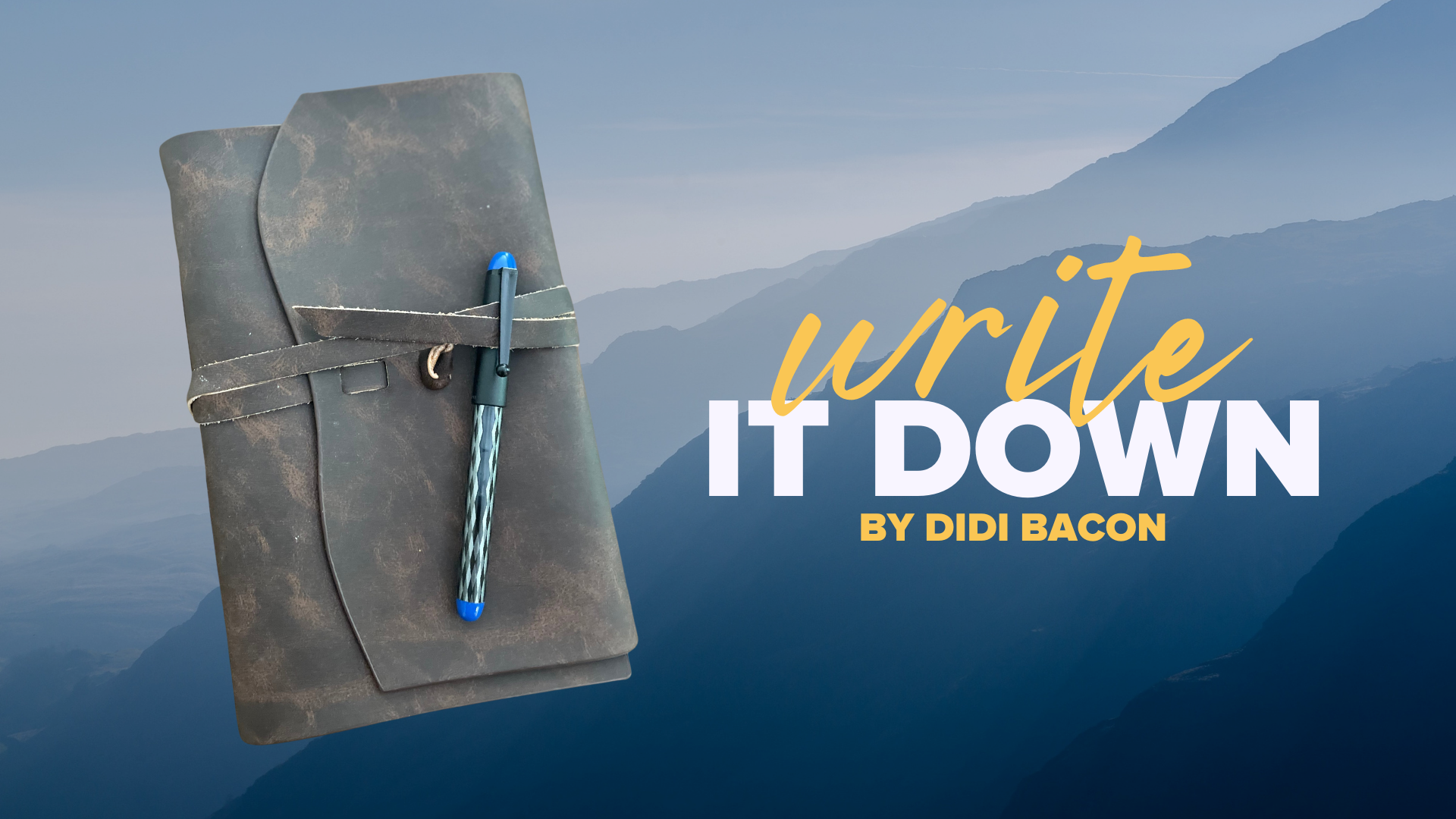I love to go fast. As an athlete in school I would say my number one strength was speed. I was called Didi the speedy! While speed is an advantage in many ways, it can also be a problem. Reading through my report cards from elementary school through high school there was a common refrain – “Didi needs to slow down. He makes too many mistakes because he rushes through his work.”
Being hasty is not a good thing. The wisdom of Proverbs says that a hasty person is a notch below a fool!
“Do you see a man who is hasty in his words? There is more hope for a fool than for him.” Proverbs 29:20 (NASB)
Sadly my hastiness has cost me dearly. Not just failing tests in school. I have acted too quickly and got myself into bad situations. I have spoken hastily and regretted every word. I have assumed too quickly and been way off the mark.
Living in haste has another consequence. Burn out. Always moving forward in haste does not allow for reflection of where I have been and where I am going. Being in haste means I miss opportunities to celebrate and rejoice. Haste means I get ahead of those whom I lead and leave them frustrated and confused. Quite honestly haste not only makes waste, it wastes you!
“I write entirely to find out what I’m thinking – Joan Didion
One of the disciplines that I have learned that keeps me from being hasty in life is journaling. I begin each morning by sitting down and writing (with a fountain point pen to slow me down). I begin by writing 5 things I am thankful for, then I write out my thoughts from the past day and my reflections on the day to come. It is where I note what scripture I am reading and the insights that come from listening to Him.
“Thoughts disentangle themselves passing over the lips and through pencil tips.” – Anonymous
Journaling helps me slow down to ponder. It forces me to reflect and think. This is what the Bible calls meditation. What I have found is that in slowing down, it does not take away my love for speed. It puts my gift for speed and production in its right place – In a God-honoring plan!
“Writing is its own reward.”- Henry Miller
Taking the time to write it down. Taking the time to journal also allows me to worship Jesus. Every Sunday I read my journal entries from the past week; I look back in order to give thanks for God’s gifts. I do this by using a practice we use for our sharing moments in our disciple groups – drains, delights, discoveries and determinations. I read back and note the things that were draining. I read my journal and note the things that I am thankful for, my delights. I read my past entries looking for lessons learned, my discoveries. Then I take those discoveries and write out what am I going to do about them? Those are the determinations.
“If you don’t write your ideas down, they could leave your head before you even leave the room.” – Richard Branson
This practice of writing things down through journaling is something that I learned from one of my mentors, Dr. Alan Ahlgrim. Alan recently wrote a book called Soul Strength, Rhythms for Thriving. Below is an excerpt from the book (pp. 147 – 149) where he shares about his own journaling practice. Enjoy and consider our challenge to write it down!
This I know: journaling can rewire your brain! That’s one of the most powerful lessons I’ve learned in recent years. I once used my journal space to scribble about frustrations or difficulties. Now I find that focusing on gratitude improves my disposition and writing what I’m grateful for improves my memory!
You’re probably not as smart as you think you are. Studies are now documenting that computers are not making us smarter. In fact, it’s just the opposite. It turns out that the act of physically writing things down helps us to remember things better. Yes, that means actually writing longhand with a pen.
The New York Times article “What’s Lost as Handwriting Fades” quotes Stanislaw Dehaene, a psychologist at College de France, on handwriting versus keyboarding: “When we write, a unique neural circuit is automatically activated. There is a core recognition of the gesture in the written word, a sort of recognition by mental simulation in your brain. And it seems this circuit is contributing in unique ways we didn’t realize. Learning is made easier.” I find that intriguing. In this day of technological addiction, we are losing our capacity for retention. Many don’t even think that physically writing much of anything is really important anymore. Think again.
While computers can retrieve information for us, computers cannot reflect. As the psalmist himself said, “I pondered the direction of my life…” (Psalm 119:59). How long has it been since you pondered something?
Well, if you’re ready to enjoy the benefits of reflecting and retaining, you need to pick up a pen and write!
I’ve written daily entries in my journal for decades. Here’s how it helps me:
-
- Writing helps me to capture insights. My thoughts disentangle themselves when they pass through my fingertips. ‘
- Writing forces me to slow down. Writing helps to free me from frantic feelings.
- Writing forces me to be honest. My rationalizations seem to stand out when I see
them staring back at me in black and white. - Writing rejuvenates me. As I reflect on the past and plan for the future, I enjoy both closure and clarity.
A close friend lamented that he had no time to ponder. I challenged him, on the spot, to pull out his notepad and immediately begin writing a few things down. He did it and discovered that beginning is a huge incentive to continuing!
Leaders are both writers and readers and therefore better “rememberers.” I found a fascinating bit of Biblical instruction given by God to the king of Israel: “When he sits on the throne as king, he must copy for himself this body of instruction on a scroll in the presence of the Levitical priests. He must always keep that copy with him and read it daily as long as he lives.” (Deuteronomy 17:18-19)
The Lord commanded the kings to do their daily devotions from the Scriptures they copied by their own hands. Might there be something here for each of us to heed?





Leave A Comment